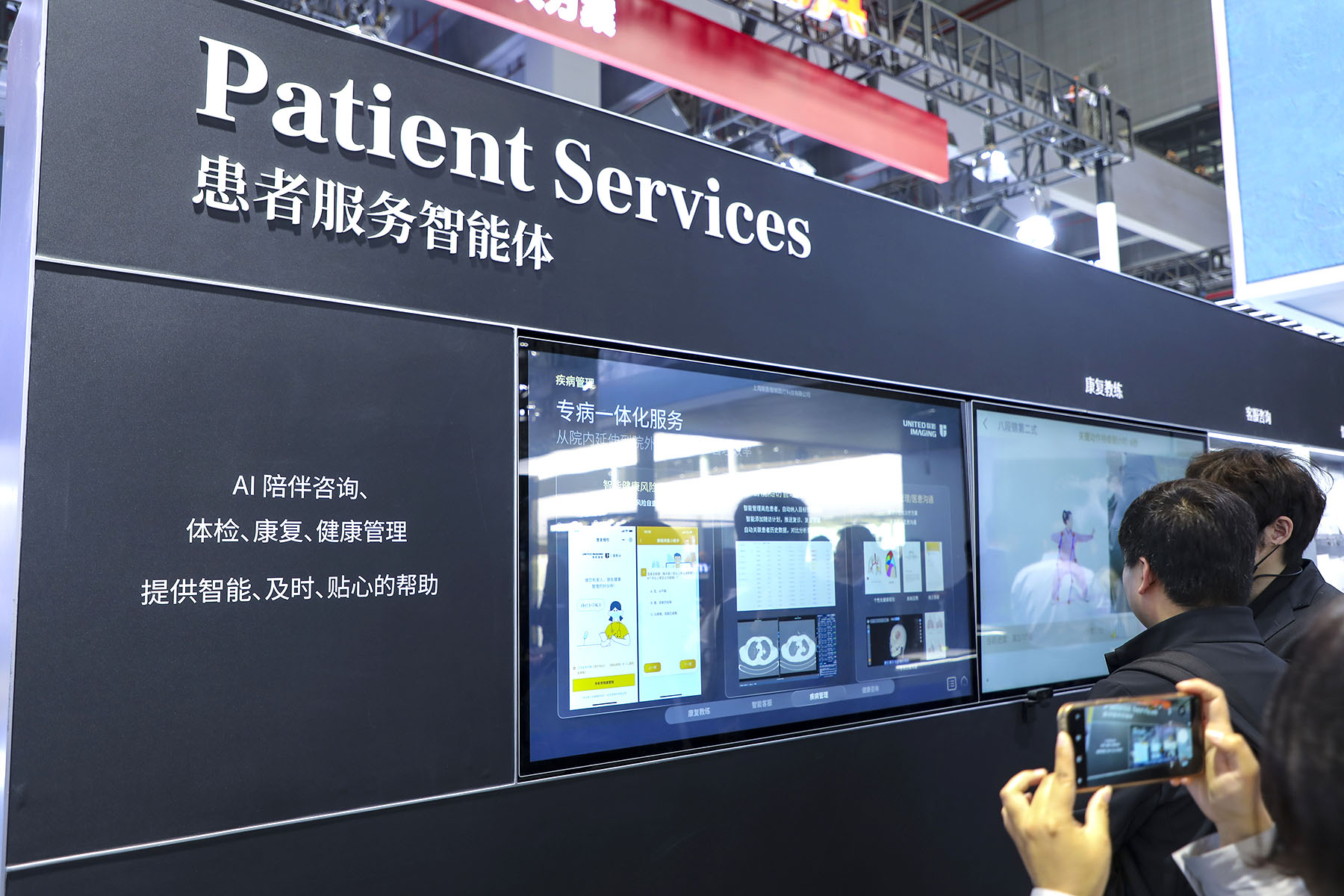Technology key to boosting efficiency, innovation, says Accenture report

Chinese companies will accelerate the adoption and popularization of artificial intelligence technology to boost operational efficiency and reinvent their businesses, as a new era of digitization is unfolding — one in which AI continuously drives new levels of autonomy across organizations — according to a new report by global consultancy Accenture.
The report said 57 percent of surveyed executives from Chinese companies anticipate a significant increase in the use of AI agents by their organizations in the next three years, compared with the global average of 40 percent.
They stressed that AI agents will benefit their organization's digital architecture, including increased flexibility, enhanced innovation and faster development time.
READ MORE: China leads in global AI patents
AI agents refer to software programs designed to intelligently interact with their environment to achieve specific goals. They can learn and enhance performance through feedback by utilizing advanced algorithms and sensory inputs to execute tasks and engage with their environments.
About 74 percent of the interviewed Chinese executives said they need to train and enhance their employees' abilities to utilize generative AI tools and technologies within the next three years, while 64 percent expect their organizations to bolster the application of AI tools and enable employees to automate tasks and workflows, the report noted.
It pointed out that 70 percent of surveyed executives in China believe the true benefits of AI will only be possible when built on a foundation of trust, and 85 percent agree that the trust strategy must evolve in parallel with any technology strategy.
Moreover, 77 percent of Chinese executives believe that robots collaborating with people and continuously learning from those interactions will increase trust and collaboration between people and robots, according to Accenture.
The research surveyed 200 Chinese company executives in about 20 industries such as high-tech, automotive and industrial equipment, life sciences, consumer goods and retail.
With technological advancements in new types of AI models, AI agents and architecture, enterprises are ushering in new opportunities for digital transformation, said Yu Yi, technology lead for Accenture Greater China.
Yu said that as companies strive to stay ahead and adapt to fast-changing markets, they are increasingly turning to AI to fuel their innovation efforts.
The proportion of Chinese companies that boost investment and application of AI is rising dramatically, he said.
The autonomy created by AI systems will allow business leaders to rethink how digital systems are designed, how people work, and reinvent how they create products and interact with customers, he added.
The report also noted that enterprises will reap the benefits brought on by AI, as individuals who are familiar with generative AI were found to be five times more likely to have a positive perception of the technology.
Industry experts said generative AI has become a major driving force for bolstering China's high-quality economic development, and its integration with the real economy is speeding up, which will promote the digital transformation of industries and the industrialization of digital technologies.
Major Chinese tech heavyweights — including Alibaba Group, Baidu, Tencent Holdings and iFlytek — have stepped up efforts to roll out their own AI-powered large language models and bolster the commercial application of generative AI technology.
The launch of DeepSeek-R1, an open-source and cost-effective AI model developed by Chinese startup DeepSeek, has captured worldwide attention and sent shock waves through the tech industry.
ALSO READ: Tech firms double down on multimodal LLMs
Xiang Ligang, director-general of the Zhongguancun Modern Information Consumer Application Industry Technology Alliance, a telecom industry association, underscored the significance of developing digital technologies represented by AI, which will inject fresh impetus into the country's economic growth and speed up digital and intelligent upgrades in enterprises.
Noting that some Chinese enterprises are facing mounting difficulties — such as budgetary shortfalls and inadequate skills training — in the process of digital transformation, Xiang said these companies should devise long-term plans for digital transformation and continuously pour money into this field.
Chinese enterprises should pool more resources into improving the quality of data that satisfy the training of AI models, optimizing algorithms, cultivating talent specialized in the field of AI and expanding cooperation with leading international AI companies, said Wang Peng, an associate researcher at the Beijing Academy of Social Sciences.
fanfeifei@chinadaily.com.cn


